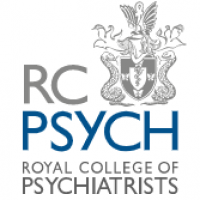What are the symptoms of Alzheimer’s disease?
Alzheimer’s often develops slowly over several years, so symptoms are not always obvious at first.
Alzheimer’s often develops slowly over several years, so symptoms are not always obvious at first. A loss of interest and enjoyment in day-to-day activities can often be one of the first changes, but this can be subtle and may be mistaken for other conditions such as depression. In the early stages of the disease, it can also be difficult to distinguish memory problems associated with Alzheimer’s from mild forgetfulness that can be seen in normal ageing.
Typical early symptoms of Alzheimer’s may include:
- Memory problems like regularly forgetting recent events, names and faces.
- Becoming increasingly repetitive, e.g. repeating questions after a very short interval or repeating behaviours and routines.
- Regularly misplacing items or putting them in odd places.
- Confusion about the date or time of day.
- People may be unsure of their whereabouts or get lost, particularly in unfamiliar places.
- Problems communicating or finding the right words.
- Some people become low in mood, anxious or irritable. Others may lose self-confidence or show less interest in what’s happening around them.
As the disease develops: Alzheimer’s develops over time, but the speed of change varies between people. As Alzheimer’s progresses, symptoms may include:
- Memory and thinking skills. People will find that their ability to remember, think and make decisions worsens.
- Communication and language become more difficult.
- People may have difficulty recognising household objects or familiar faces.
- Carrying out day-to-day tasks becomes harder, for example using a TV remote control, phone or kitchen appliance. People may also have difficulty locating objects in front of them.
- Changes in sleep patterns often occur.
- Some people become sad, depressed or frustrated about the challenges they face. Anxieties are also common, and people may seek extra reassurance or become fearful or suspicious.
- People may have problems walking, be unsteady on their feet, find swallowing food more difficult or have seizures.
- People may experience hallucinations, where they see or hear things that are not there. Others may believe things to be true that haven’t actually happened, known as ‘delusions’.
- People gradually require more help with daily activities like dressing, eating and using the toilet.
Dr Behzad Basit is an experienced Psychiatrist who helps patients with living with dementia. With his medical career starting in 1988, Dr Basit been described by patients and colleagues as very approachable and can help patients experiencing problems with memory and possible Dementia. His background in general practice, psychiatry and psychotherapy enables him to take a holistic approach in the assessment and management of patients.
We invite you to learn more about Dementia here.
To book a consultation with Dr Behzad Basit, please complete our contact form here.
Source: Alzheimers Research UK









